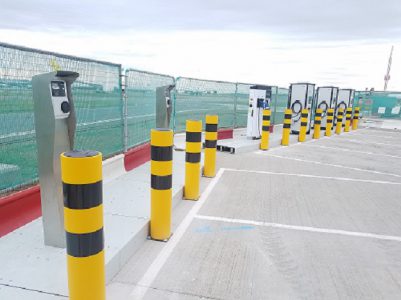Pollution free electric car is the answer to global warming and it is expected to become a reality by 2030.
Electric powered vehicles do not spew harmful gases and are free of pollution. Hence, one of the options to reduce #Global warming, which is at the root of many ills that plague the world, is to promote vehicles that do not use fossil fuels. The concept is gradually spreading and the world wants to see the popularity of #plug-in cars increase.

This strategy is necessary to combat climate change. As per estimates of the International Energy Agency, the population of electric vehicles must be at least 40 percent of passenger vehicle sales by 2040 to check global warming. This has to be achieved to meet the climate goals as envisaged in the Paris climate agreement.
However, transition would not be an easy affair because of several factors.
The bright side
According to New York Times, a new report by a research group has suggested that there is a downward trend in the price of plug-in cars because of the availability of cheaper batteries and aggressive policies that promote zero-emission vehicles in some countries. The vision of the future is that, within the next couple of decades, such vehicles would become cost competitive against traditional petroleum-powered cars. Obviously, people will be influenced to switch loyalties and embrace them to fight the menace of global warming.
It is true that plug-in vehicles are linked to climate change but they have yet to get a toehold in the market. At present, they comprise a miniscule percentage but the picture is slated to change.
Two majors like Tesla and Volkswagen have drawn up plans to roll out more than one million electric vehicles on an annual basis by 2025. Volvo is another major that plans to gradually phase out the combustion engine models and, from 2019 onwards, its new models would be either hybrids or entirely battery-powered.
One forecast is that by 2040, plug-in hybrids and all-electric vehicles will make up 54 percent of new light-duty sales and ease out combustion engine models.
Read more: Blasting News



















